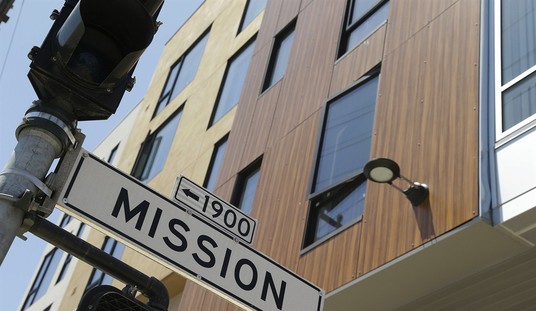More than a few people have claimed that the lack of a press shield law allowed the Department of Justice to seize phone records by the bushelful from the Associated Press. David Ignatius made that claim in his lament over the impotence of a federal government that nevertheless managed to grab all of those records from the AP’s newsgathering operation, and who knows how many more media organizations (Eric Holder doesn’t). Now the White House has rushed to champion the shield law that it long ago abandoned in order to mollify media outrage over the actions at Justice:
Facing questions about the Justice Department’s secret seizure of reporters’ phone records, the White House says that it will renew its push for legislation that would offer federal protections to journalists and their sources.
White House spokesman Jay Carney said Wednesday that the White House has asked Sen. Charles Schumer, D-N.Y., to reintroduce the so-called media shield bill, which would in some cases, prevent reporters from being compelled to name confidential sources.
Schumer’s last attempt to pass the bill faltered nearly four years ago with little aid from the White House and it has not been a priority for Congress or the president since then. But news that the government had secretly subpoenaed two months of phone records from more than 20 Associated Press telephone lines appears to have sparked new interest in the effort.
Even Obama tried to push this in today’s press conference, after saying “I make no apologies” for going after the AP:
http://www.youtube.com/watch?v=PRVtut4T0Xk
But the president’s views on how best to protect journalists from prosecution and intimidation, while also balancing national security concerns, appear to have evolved in office. As a senator and candidate in 2008, Obama said he supported a shield law and specifically noted that he believed a court, not the executive branch, should determine whether a confidential source should be protected. …
But as president, Obama sought to curb the role of the courts and broaden the executive branch power.
So the sudden concern now is rather transparently hypocritical — and a way to pander to the media that the Obama administration has (potentially) alienated. It’s also a shell game in terms of the current scandal, because existing law should have prevented the seizure in the first place, at least in the manner accomplished by Deputy AG James Cole and Justice. The letter from the Reporters Committee for Freedom of the Press to Holder cites the relevant statutes in federal law and how Justice violated each of them:
Subpoenas of the news media for testimony and evidence are governed by theAttorney General’s guidelines found at 28 C.F.R. § 50.10 and incorporated into the U.S. Attorney’s Manual. See § 9-13.400. These guidelines were enacted in 1972 and were expanded specifically to cover telephone records in1980. They were developed to accommodate both the interests of the government in prosecuting crime and the First Amendment interests in reporting on issues of public concern. We know this to be true because theReporters Committee played a role in their promulgation. In this instance,where the Department subpoenaed two months of records related to 20telephone lines, including records from major AP bureaus and the home phone and cell phone records of individual journalists, the Department appears to have ignored or brushed aside almost every aspect of the guidelines. Each one merits specific review.
Narrow scope of the subpoena: Section 50.10(g)(1) requires that a subpoena “should be as narrowly drawn as possible; it should be directed at relevant information regarding a limited subject matter and should cover a reasonably limited time period.” The available evidence shows that no such constraints were applied here. Instead of being directed at relevant records on a limited topic for a closely circumscribed time period, the subpoena appears to have covered all records that could be relevant so that prosecutors could plunder two months of newsgathering materials to seek information that might interest them.
Seeking information from alternative sources: Sections 50.10(b) and 50.10(g)(1) require the Department to take “all reasonable alternative investigative steps” before subpoenaing phone records. Although the public is not in a position to know what alternatives were pursued, the sheer breadth of this subpoena suggests that it was an initial investigative step taken as part of a prosecutor’s desire to gather up even the most remote materialwhen beginning an investigation.
Obligation to inform and negotiate: Section 50.10(d) requires federal prosecutors to disclose their intent to pursue a subpoena and negotiate with the news media in “all cases” involving telephone records. Only if prosecutors determine that such negotiationswould “pose a substantial threat to the integrity of the investigation” are these obligations removed. The purpose of such an exception is to ensure, in the rare inquiry where there is a reason to be concerned about the preservation of evidence, that records are not lost or destroyed. By deciding in this case involving one of the nation’s oldest and most respected news organizations that a subpoena would pose such a threat, the Department has severely harmed its working relationship with the news media, which time and time again have undertaken good-faith efforts to cooperate with government lawyers in a way that protects the public’s interest both in law enforcement and in independent and autonomous newsgathering.
In essence, the new position for the White House on the shield law is this: We’d respect that law even though we clearly didn’t respect existing law. Anyone in the media who falls for this argument is courteously invited to the football field, where Lucy Van Pelt will hold the football for reporters to kick through ever-moving goalposts.
Update: The Daily Beast reports that the Society for Professional Journalists is already scoffing at the offer:
“It is a blatantly political move,” said Sonny Albarado, president of the Society of Professional Journalists. “I don’t know why anyone would think that this would appease those of us who are outraged. I think it is curious that the administration pushed for this the day after—the day after!—it got a black eye for secretly going around obtaining journalists’ work product.” …
“When I heard this came out of the White House, I went, ‘Yeah, so?’” said Lucy Dalglish, the dean of the Journalism School at the University of Maryland and someone who has pushed for a federal shield law for years. “They think, ‘Oh well, we threw this bone to them before and it sort of kept them happy.’ Give me a break. This doesn’t pass the smell test.” …
Dalglish said even a shield law probably wouldn’t have prevented the Justice Department from doing whatever it took to track down the source of the Associated Press’s leak. “This would not have stopped those guys from doing what they did,” she said. “I am glad they are talking about a shield law. That is a good thing. But I don’t see these guys in the Justice Department paying much attention to it.”
They had no trouble stomping all over the existing law that should have prevented the secret records raid. Adding another law won’t stop those intent on acting in a criminal fashion.








Join the conversation as a VIP Member